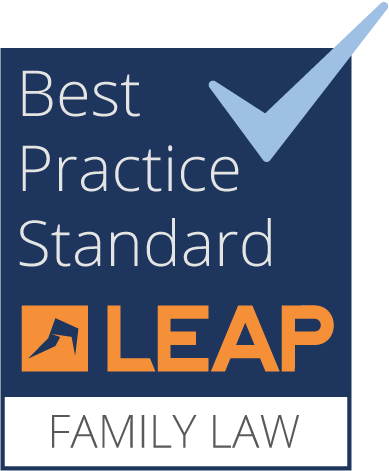The approval of several Covid-19 vaccines in the UK is hopefully the light at the end of the tunnel. With many older people and people with underlying health conditions now vaccinated, many are hoping that life will soon start returning to normal.
However, the vaccine is voluntary, so what if lots of people simply decide not to get it? Currently, children are not in line to receive the vaccine at all, but the pandemic has highlighted an interesting question – what should parents do if they cannot agree on whether to vaccinate their children?
Do you legally have to vaccinate your children?
There is no law that says you have to vaccinate your children. However, health professionals highly recommend that parents vaccinate their children to prevent them from catching extremely serious diseases.
Because of vaccines, diseases such as polio, smallpox and tetanus – which used to kill or disable millions of people – have now completely or mostly disappeared. However, in recent years, many people have become averse to vaccinations. These ‘anti-vaxxers’ claim that vaccines can cause more health issues than they prevent.
Although all claims put forward by anti-vaxxers have been thoroughly debunked by health professionals, more and more people are choosing not to vaccinate their children due to fears about vaccine safety.
So, it is common nowadays for parents to have different opinions about whether their children should be vaccinated. Of course, unless one parent changes their beliefs, there is rarely a way to compromise on this issue – the child can either be vaccinated or they cannot. Therefore, these disagreements can often spiral out of control and lead to court litigation.
For more information on vaccines and their safety, visit the NHS website.
Who decides whether a child is vaccinated?
As a parent with parental responsibility for your children, you are able to make decisions about their care and upbringing, including decisions about their medical care and treatment.
However, you must also involve any other person with parental responsibility in important decisions about the children’s upbringing.
This means that parents must both agree to get their children vaccinated.
Legal jargon buster…
What is parental responsibility?
‘Parental responsibility’ is the legal term used to describe the bundle of rights and responsibilities you have in relation to your children. For example, you have a responsibility to provide a home for the child and you can decide where the child lives.
It is different to the legal definition of ‘parent’ – you do not have to be a child’s parent to have parental responsibility. Additionally, a child can only have two parents but any number of people can have parental responsibility. However, most of the time, only the parents of a child have parental responsibility.
When you share parental responsibility, you make major decisions – such as decisions over medical treatment – and everyone with parental responsibility needs to agree.
What happens if parents cannot agree whether their child should be vaccinated?
In some cases, it may be possible for parents to negotiate a solution. A family solicitor who specialises in children matters or a qualified mediator is best placed to help with this.
For example, informal negotiation might be appropriate if the parents are getting a divorce and are making a parenting plan about the future care of their children. If one parent is simply on the fence about vaccinations – perhaps because of posts they have seen on social media – with the right advice, a positive resolution may be possible.
And if the parents still cannot agree?
If informal negotiation is not possible, you can apply to court for a Specific Issue Order.
A Specific Issue Order is a type of family court order that makes a decision about a child’s upbringing when the parents cannot agree. For example, a Specific Issue Order might be used to decide the following questions:
- Whether the child’s surname can be changed
- Whether one parent can take the child abroad for a long time or permanently
- What kind of education the child should have and where they should go to school
- Whether the child should have a religious upbringing
Specific Issue Orders are also commonly used to decide what kinds of medical treatment and healthcare the child should receive. Over the years the courts have ruled on all sorts of medical related matters, from whether a child should receive their MMR vaccination to whether they should receive life-saving treatment such as surgery or a blood transfusion.
How do the courts decide whether to make a Specific Issue Order?
The court will only ever make a decision that is in the best interests of the child. They will often go through a list of considerations called the ‘welfare checklist’ to make their decision. These considerations include:
- The ascertainable wishes and feelings of the child (in light of their age and understanding)
- The child’s physical, emotional and educational needs
- The likely effect of any change in circumstances
- The child’s age, sex, background and other relevant characteristics
- Any harm the child is at risk of suffering or has suffered
- How capable the child’s parents are to meet their needs
- The range of powers the court has in relation to children
Although the courts usually prefer for parents to work out issues between themselves where possible, where delaying making an order would put the child at risk – for example, if they are already overdue their vaccinations – then an order is likely to be made.
So, in most cases, the court will consider it in the best interests of the child to have their vaccinations. For example:
- In this 2003 case, the judge decided that it would be in the children’s (aged 3 and 9) best interests to receive their MMR vaccinations.
- In this 2018 case, the father did not want his daughter to receive the combined MMR vaccine (which protects against influenza, diphtheria, tetanus and polio). The judge said that the father’s views were ‘unreliable’ and ‘at odds’ with medical experts. He therefore ordered that the child should have all their vaccinations without further delay.
It is important to note that these cases involved young children. Older children between 16 and 17 are usually allowed to make their own decisions about medical treatment. Children over 13 years old may be able to make their own decisions, depending on the circumstances of the case. For example:
- In this case in 2013 – the children were aged 11 and 15, but the judge decided that neither could decide to refuse vaccines themselves because they were influenced by their mother’s beliefs.
So will the courts come to same decisions about the Covid-19 vaccine?
In this recent case, handed down on 21 December 2020, the judge granted a Specific Issue Order allowing two children aged 6 and 4 to have vaccinations in line with the NHS vaccination schedule.
When asked to consider the question of whether the children should have the Covid-19 vaccine, he did not want to make a ruling, stating that it was unclear about what guidance and recommendations would be given about the vaccination of children.
However, he said that:
‘It is very difficult to foresee a situation in which a vaccination against Covid-19 approved for use in children would not be endorsed by the court as being in a child's best interests.’
So, it appears that if and when Covid-19 vaccinations are recommended for children, unless there is significant scientific evidence to suggest that the vaccines are not safe for children, the courts are likely to order children to have them.
Are you in a disagreement with your ex-partner about your children?
At hpjv, our friendly and highly skilled children law solicitors provide practical advice and support to separated parents.
We help with all types of coparenting arrangements, including disputes over children’s care and upbringing.
So, if you and your ex-partner are in disagreement about your children’s medical treatment, we are here for you.
Get in touch with our children law solicitors in Newport to book your free first consultation with us.








